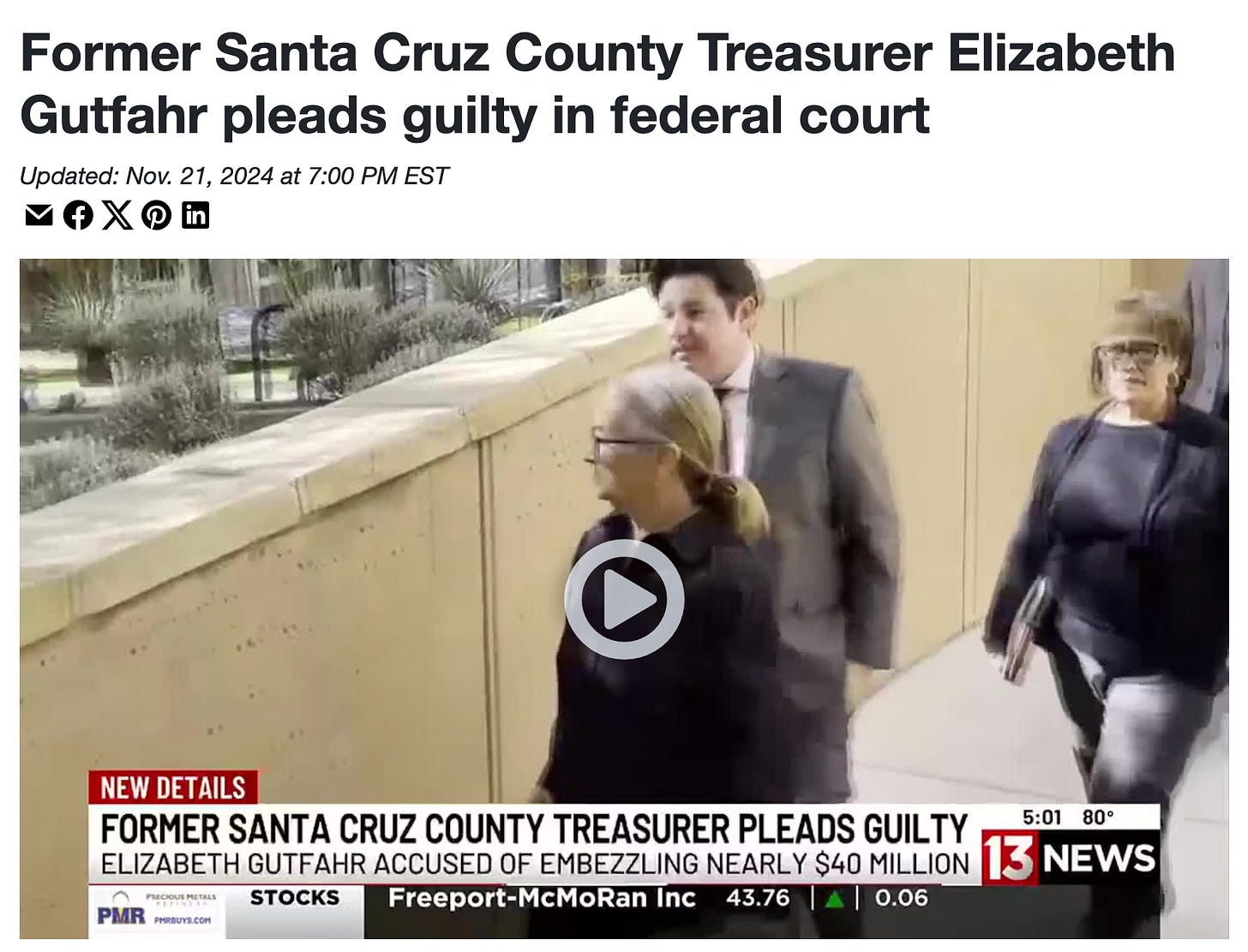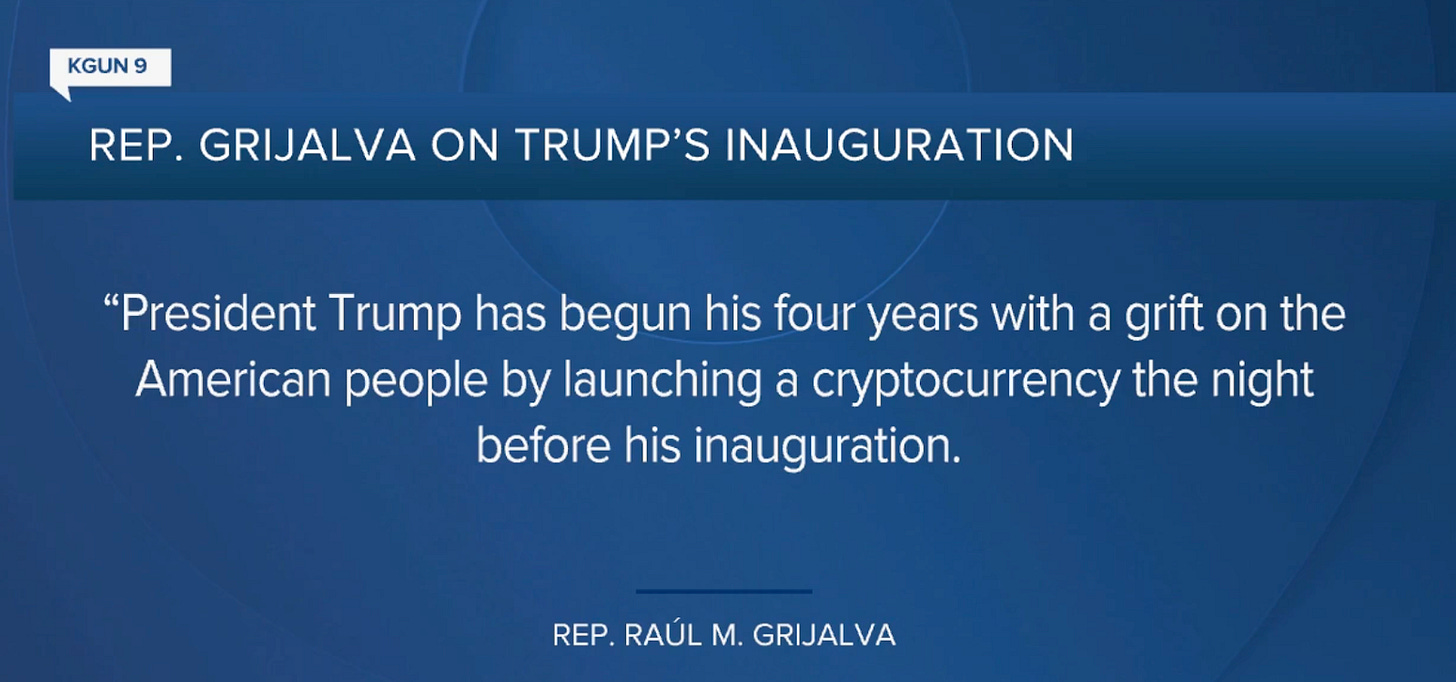There’s a reason why journalists love audits and bureaucrats hate them.1
They are, at best, a concise outside analysis of whether you (as a government employee) are following the rules and essentially doing your job. On the other end of the spectrum, audits are also tedious, nit-picky and have been known to cause panic.
It remains to be seen which end of the spectrum an ongoing audit of Pima County will land on.
Pima County Administrator Jan Lesher quietly released a one-page memo announcing that the Schedule of Expenditures of Federal Awards (SEFA) audit of its grants division would be delayed, but didn’t offer much of an explanation.
The memo suggests that the county’s Grants Management and Innovation division, which handles most of the county’s grants, was unable to meet standard deadlines because the agency was struggling with high turnover, increased federal scrutiny and unavoidable delays related to the countywide transition to a proprietary software package known as Workday.2
These issues reportedly led to GMI repeatedly ghosting the auditor’s emails and not responding to requests for specific information.
County insiders indirectly confirmed that some emails were not answered, but blamed the Workday software transition. Some key financial information was unavailable for several weeks last year and officials couldn’t produce the data the auditors had requested.
We don’t have an exact figure for how much in grants Pima County gets every year, but one internal county report suggests GMI is currently managing more than $150 million in federal grants.
While unrelated to the SEFA audit, GMI is also involved with the county’s ongoing legal fight with FEMA over roughly $10 million that was spent to house asylum seekers.
Those grants are not contained just within Pima County government itself, they’re often pass-through grants to other governmental agencies and local nonprofits, so an issue with GMI will have a domino effect.
The Arizona Auditor General is also aware of the audit, and has been advised that the report would be late. County officials are expecting additional correspondence from the state agency concerning the delay.
The involvement of the Arizona Auditor General could potentially be a sign that this is a bigger issue than a simple delay.
Lurking behind any discussion of audits at Arizona’s county governments is the nightmare scenario that played out recently in Santa Cruz County.
Last year, the Arizona Auditor General issued a report detailing that former Santa Cruz County Treasurer Elizabeth Gutfahr embezzled roughly $39 million over the course of a decade.
State auditors didn’t find anything like that in Pima County last year. The Auditor General reported two minor findings, both related to IT management and security issues.
While there are no direct accusations of mismanagement at this time, the County is waiting on the findings from the audit.
But one line in Lesher’s memo really caught our attention.
“I am currently reviewing GMI’s financial operations to determine areas of concern that may result in organizational changes,” she wrote.
A day after Lesher wrote that memo, she was back at the computer again announcing that the head of the GMI had submitted a resignation letter and gave your typical … 75-day notice.
Lesher was ready with an interim appointment the same day. The appointment is effective on May 1.
GMI has struggled with high turnover, although it’s hard to know exactly how many people left the department recently.
A report in December stated GMI had 60 employees and 19 vacant positions.
We found a newer report for vacancies in Pima County dated March 10, but county staff told us the information was inaccurate. That report suggested GMI had 106 employees.
We’ve asked the County for clarification on how many people currently work for GMI.
It might not matter, as the County is moving ahead with a reorganization of the entire department, putting GMI under the direct control of the finance department.
The two departments have worked closely together since the formation of GMI, but have always had separate mission statements.
Insiders tell the Tucson Agenda that the move has been in the works for over a year, but with the GMI department head leaving, it was a good time to move the department under the control of the county’s finance director.
If you want to see how all this plays out, click that button and we’ll keep you up to date!
Rep. Juan Ciscomani was optimistic when President Donald Trump took office a few months ago. Having a Republican president and a Republican-controlled Senate and House were the trifecta needed to get things done in southern Arizona.
“That means that the work is a lot more meaningful because it can make it all the way through and we can actually do the things that we ran on,” Ciscomani told KGUN shortly after Trump’s inauguration.
Yesterday, Ciscomani responded to our story about the $33 million in earmarks he got for various southern Arizona projects, which vanished when the Senate and House passed a continuing resolution that President Trump signed into law.
In his response, he blames …. Congress. While the two-term Republican blames a “bipartisan” Congress for not including his earmarks in the CR, it was a Republican CR that was approved almost entirely (just one House Democrat voted for it) by Republicans in the House, including Ciscomani himself.
Here is his full response to the Tucson Agenda:
“I have fought and secured tens of millions of dollars of community project funding for my district and am proud of that record. Unfortunately, as I have conveyed to all of this year's recipients, I am very disappointed that the bipartisan Continuing Resolution Congress passed did not include any of the funds I secured through my work on the Appropriations Committee. I am dedicated to continuing to work with each of my project recipients to find funding for these vital projects. We are waiting for further information on the process for FY26, but it is my intention to continue fighting for these projects.
Shutting down the government, by not supporting the bipartisan CR, would have been extremely harmful to my constituents and not an option for me. I will continue to find ways to ensure the federal government is delivering for AZ-06 whether that be through grants, program funding or casework.”
It’s official, Arizona Secretary of State Adrian Fontes has decided he will not run for Congress.
“After careful thought and reflection, I have decided that for family, for country, and for Democracy, I will continue to defend America as Arizona’s Secretary of State,” Fontes wrote on Twitter.
Fontes said part of his decision was based on President Trump’s recent executive order, which Fontes believes is laying the groundwork to not have elections next year.
Trump signed an executive order on Tuesday requiring proof of citizenship to vote, setting up a legal fight with states on who has the authority to conduct elections.
Did former state representative Daniel Hernandez raise $100,000 for his campaign for the CD7 seat in a single day?
It depends who you ask. Hernandez told Axios that he raised the six-figure sum right after he announced his run for Congress.
But those donations are not showing up in his FEC filings. Contributions of $1,000 or more must be reported within 48 hours.
This is not an accusation that Hernandez has done anything wrong – but there is a world of difference between a pledge to donate to your campaign and what is actually in your campaign coffers.
The number of people vying for the vacant CD7 seat continues to grow. At last count, there are 22 candidates, with more expected to get into the race in the next few days – including Pima County Supervisor and the late congressman’s daughter Adelita Grijalva.
Democratic candidates: Daniel Hernandez, Samuel Alegria, David “Bees” Bies, Patrick Harris, Sr., Victor Longoria, Samantha Severson, Danielle "Dani" Sterbinsky, Trista di Genova, Scott Sheldon, and Stefawna Welch.
Republican candidates: Daniel Butierez, Sr., William “Bill” Hunter, Carolyn Norris, Jorge Rivas, Raul Verdugo, Steven Willhite, Jimmy Rodriguez, Michael Rebeiro, Gabriel Tapia, and Joe Wells.
Libertarian candidate Alan Aversa and frequent Green Party candidate Richard Grayson make it 22 candidates for now.
License to speed: A spate of recent high-profile traffic stops of state lawmakers wasn’t enough to get lawmakers to give up their get-out-of-jail-free card, Capitol Media Services’ Howard Fischer reports. GOP Rep. Quang Nguyen tried to get the measure on the ballot for voters to decide, and his bill made it pretty far through the legislative process. But the chair of the Public Safety Committee, fellow Republican Sen. Kevin Payne, wouldn’t give the bill a hearing.
Keeps coming back: Tucson Democratic Rep. Consuelo Hernandez is fed up with Republican lawmakers who keep bringing back anti-transgender bills. One of those bills, which would determine which pronouns and which bathrooms students can use, passed a House committee along party lines on Tuesday, the Arizona Mirror’s Caitlin Sievers reports. Hernandez voted against the bill and said people should be able to use whichever pronouns they prefer.
“It is very disappointing that we’re not working on issues that are actually affecting Arizonans and we just go after trans kids and it’s just very exhausting and I’m sorry for those who have to hear this,” Hernandez said.
Prosecuting protestors: Four protesters who face misdemeanor trespassing charges from 2023 are claiming state and federal religious freedom laws protect them from prosecution, the Tucson Sentinel’s Paul Ingram reports. They were protesting Raytheon’s sale of missiles to Israel, which their lawyer said “facilitates Israel’s ongoing siege and bombardment of Gaza” and violates their belief in the “sanctity of human life and the necessity of conscientious action to prevent genocidal acts.” One of them is studying to become a rabbi. Another is an ordained Protestant minister who was wearing his clerical collar when he and more than 20 others were arrested at the entrance to the University of Arizona's Tech Park. Also swept up in the arrests was a local reporter who was covering the protest.
A piece of Tucson’s past: The historic Arizona Inn is up for sale, the Arizona Daily Star’s Gabriela Rico reports. The 14-acre property on East Elm Street has been owned by the family of Isabella Greenway since the inn opened in 1930. The family is looking for a buyer who recognizes the inn’s significance and wants to preserve its legacy. There is no sale price yet.
Yesterday, thousands of people turned out or tuned in to pay respects to Congressman Raúl Grijalva.
We have spoken about him a lot recently and his courage to always speak his mind. This blunt quote from a few weeks ago seems like a fitting tribute to Grijalva’s lifelong dedication to fighting injustice wherever he saw it, regardless of who he was criticizing.
Yesterday, the Trump family announced the launch of another crypto-currency - Stablecoin.
We wonder what Raúl would have said about that.
Unless your job is to conduct audits, then we’re guessing you love them as much as we do.
Frequent readers of the Tucson Agenda should expect a lot of things to be blamed on Workday over the next few years.














Hey, Ciscomani, if you're not a lying coward, hold a town hall that's open to the public in Tucson.